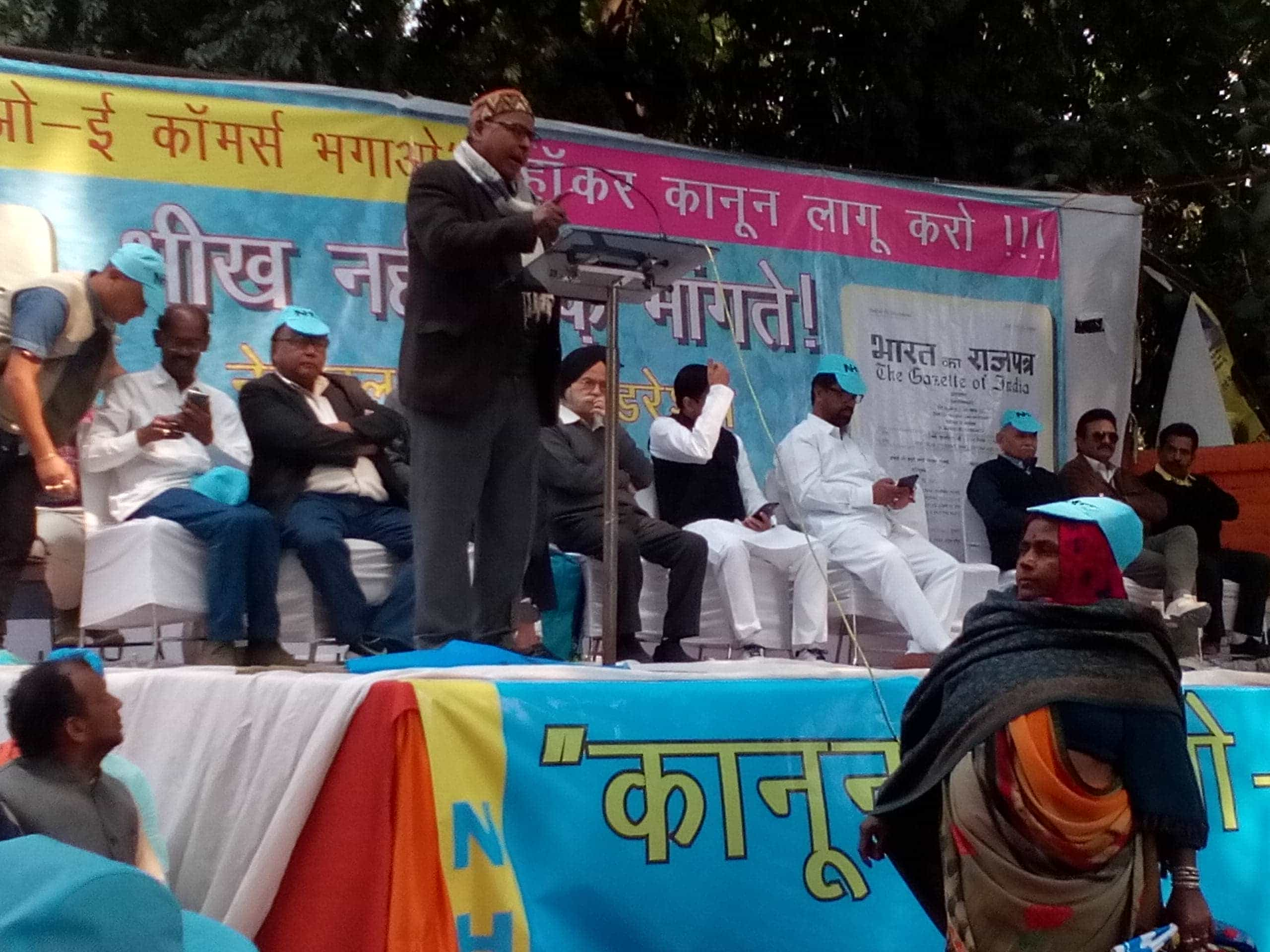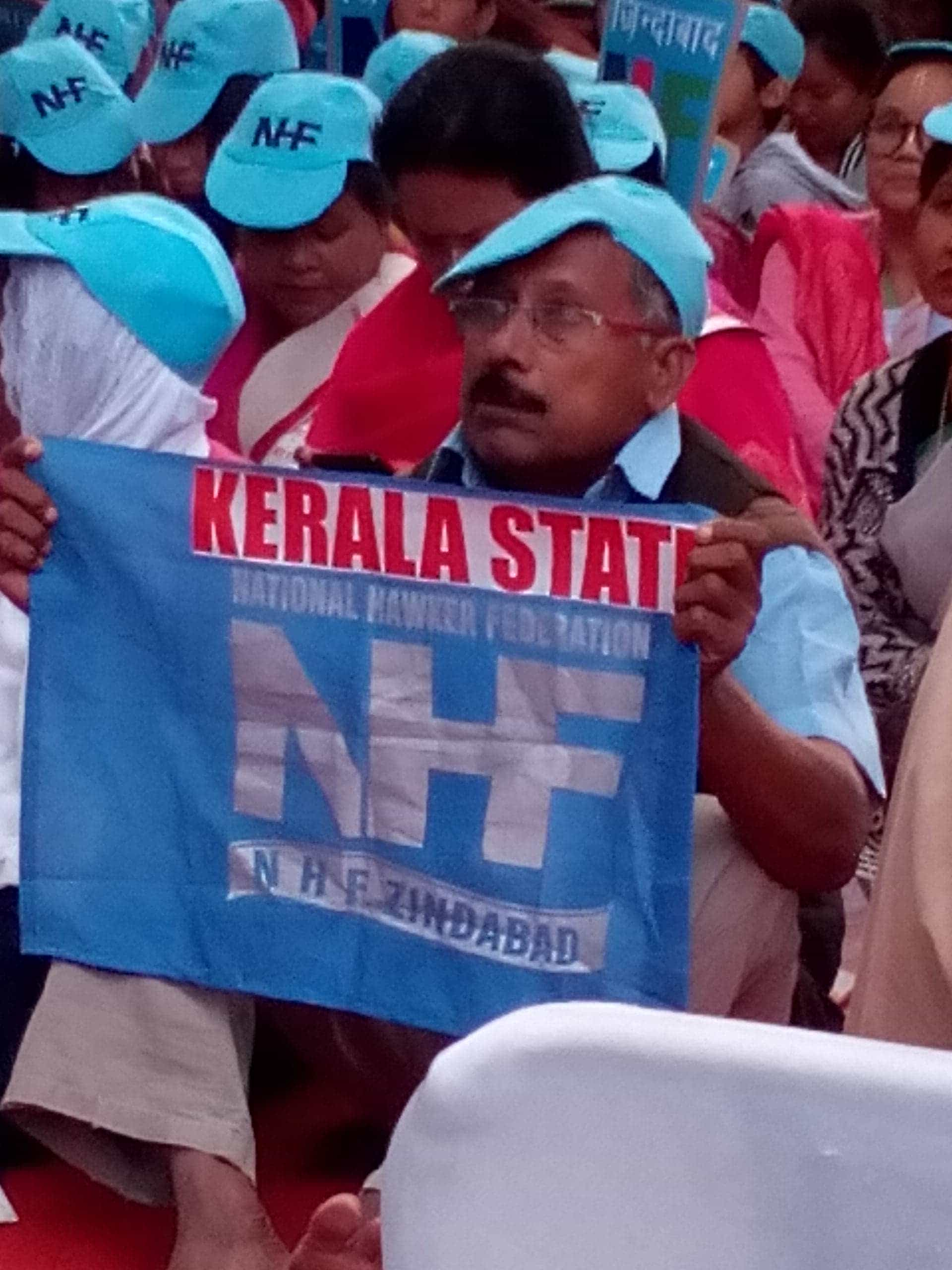Listener of Small Voices | Posted on |
Unprecedented Eviction AFTER SV Act ‘14
0
4604 Views
“Jai Mata meaningless without respecting people”
“Our Parliament can make rules overnight to allow MNCs into the country, but it is dragging its feet to protect its own street vendors – whose government is it?” demands Saktiman Ghosh, General Secretary, National Hawkers Federation (NHF).
 (Hawkers Protest)
(Hawkers Protest)
There were a few thousand street vendors in the Capital from every state in the country to echo his rhetoric.
The 10 million street vendors across the length and breadth of the country are a prominent feature of our cities, towns, and villages, most substantially in metros like Mumbai, Delhi & Kolkata, where the poor and unskilled turn to this means to make a paltry minimum to subsist.
They are a maligned lot. Contrary to popular perception, their work is grueling - involving long hours, unsafe, not secure and stressful. Additionally, they can often be perceived as a public nuisance, exploited by local municipal staff, goons and the police. They are vulnerable to vagaries of weather; lack of amenities, like toilets and clean drinking water.
Yet, they provide key goods and services to a whole spectrum of people – offering easy, quick, convenient ways to buy fresh & cooked foods, groceries, as well as services, like shoe polishing & repair, tailoring, etc.
 (Amrita Devi, vegetable vendor from Ranchi, Jharkhand)
(Amrita Devi, vegetable vendor from Ranchi, Jharkhand)
Recognizing the importance of their role in the country’s economy and society, the Street Vendors Bill had been introduced in Parliament in 2012, passed in Lok Sabha in 2013 and in the Rajya Sabha in February 2014. The aim of the Bill was to “protect the livelihood rights of street vendors as well as regulate street vending through demarcation of vending zones, conditions for and restrictions on street vending.”
However, the street vendors claim that they have faced unprecedented levels of harassment and eviction since the Bill came into effect. They feel that most state and local governments haven’t bothered to implement the law at all. This is a double blow as e-commerce according to them has already reduced their business by 30%.
The NHF has submitted a letter to Hardeep Singh Puri, Minister for Housing & Urban Affairs, to urgently address their grievances. A key point is of Town Vending Committees (TVC), which they feel should be elected by street vendors themselves and not selected or nominated by ULB’s (Urban Local Bodies), as they don’t prioritize vendors’ needs.

(Podium)
Another difficulty they want clearly eliminated is of demand for domicile certificates from street vendors by ULBs. “This is absurd,” says Kavita Kate, who works with the NHF, “We are one country, it is our constitutional right to work in any part of the country.”
The NHF also wants street vendors to be integrated into the masterplans being drawn up for cities. The so-called ‘Smart City’ initiatives need to take street vendors firmly into account.

“We are witnessing a situation where the government will promptly allot land for 6 airports to be made in a state, but they drag their feet over giving street vendors 50 yards of space!” Vidya Sagar Giri, National Secretary, AITUC (All India Trade Union Congress), who spoke in support of the vendors.
